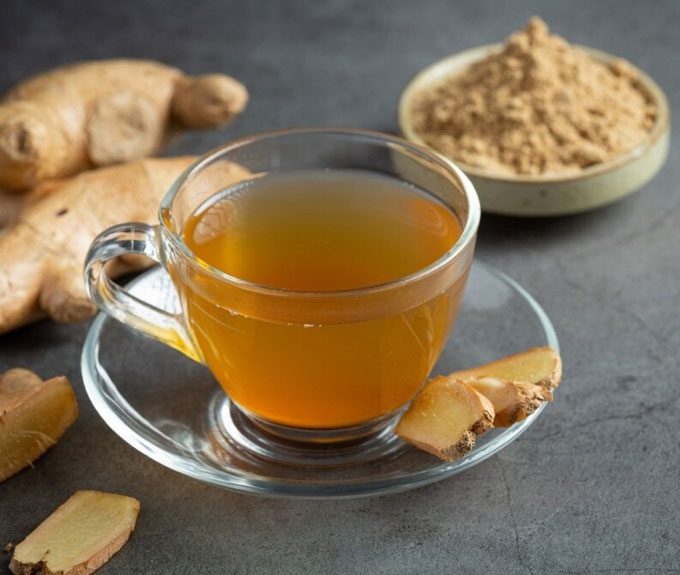Ginger tea, bone broth, bananas… help alleviate symptoms caused by sensitive stomach, inflammatory bowel disease, and irritable bowel syndrome.
Foods Beneficial for People with Sensitive Stomachs
A sensitive stomach is a common condition experienced by many, with symptoms such as bloating and indigestion. Norovirus infections are also quite prevalent, affecting approximately 685 million people worldwide each year. This illness causes stomach pain, abdominal cramps, loss of appetite, nausea, vomiting, and diarrhea. Norovirus is a type of stomach and intestinal virus that spreads easily through direct or indirect contact with infected individuals.
Fermented Foods
Kimchi, yogurt, miso, and kombucha provide probiotics in the form of beneficial live bacteria, helping to inhibit harmful bacteria in the gut. Individuals with digestive issues can benefit from consuming fermented foods, which can help balance gut microbiota and improve digestion.
A review published in 2023 by the Korean Institute of Traditional Medicine and several other organizations, based on 11 studies, showed that consuming kimchi supports the treatment of irritable bowel syndrome. Kimchi is also rich in fiber, vitamins, and minerals that contribute to overall health.
Cooked Vegetables
People with sensitive stomachs should avoid raw vegetables and salads, especially cruciferous vegetables, as these can cause indigestion. Instead, it is advisable to consume soft-cooked vegetables. For example, cooked zucchini and eggplant are beneficial for individuals with irritable bowel syndrome. Steamed or boiled vegetables paired with white rice and healthy lean protein are good options for those with sensitive stomachs.
Bone Broth
Bone broth can help relieve stomach pain as it is easy to digest and does not irritate the intestines. According to the Crohn’s and Colitis Foundation of America, bone broth has anti-inflammatory properties that can reduce symptoms of ulcerative colitis.
Bone broth may also enhance collagen production to restore the gastrointestinal mucosa, particularly in the elderly due to age-related effects. The collagen in bone broth improves skin elasticity and joint health.

Ginger tea helps reduce nausea. (Image: Freepik).
Herbal Tea
Peppermint tea and ginger tea soothe stomach pain and alleviate abdominal discomfort. A review from 2000 by the University of Exeter in England, based on 5 studies, indicated that ginger alleviates nausea caused by sensitive stomachs, morning sickness, chemotherapy, or medication side effects. Inhaling the scent of peppermint also reduces feelings of nausea.
Drinking herbal tea helps maintain hydration, as dehydration can lead to stomach pain, fatigue, and other digestive issues.
Kefir
Kefir is a fermented milk drink made with Tibetan milk fungus, similar to thin yogurt, containing approximately 12 strains of beneficial bacteria that support gut health.
According to a 2018 study from Istanbul Aydın University in Turkey, 45 patients with inflammatory bowel disease who consumed 400 ml of kefir daily for 4 weeks experienced improved gut bacteria, reduced abdominal pain, bloating, discomfort, and bowel movement frequency.
Kefir is also rich in calcium, protein, and B vitamins, which are essential for bone health and energy production for normal functioning.
Bananas
Soft and easy to digest, bananas are suitable for individuals with sensitive stomachs and irritable bowel syndrome.
According to UMass Chan Medical School in the United States, bananas are rich in prebiotic fiber that nourishes beneficial gut bacteria, balancing good and bad bacteria, and improving inflammation in patients with inflammatory bowel disease. This fruit also contains potassium, magnesium, vitamin C, and vitamin B6, which are essential for overall health.
Pears

Pears provide abundant fiber that promotes the growth of beneficial bacteria in the large intestine, contributing to a healthy digestive system. Individuals with constipation may find it easier to have bowel movements by consuming pears, prunes, and dates, reducing stomach discomfort.
However, those with irritable bowel syndrome should limit their intake of pears, as certain sugars may cause gastrointestinal issues; instead, they should opt for grapes, oranges, and strawberries.


















































